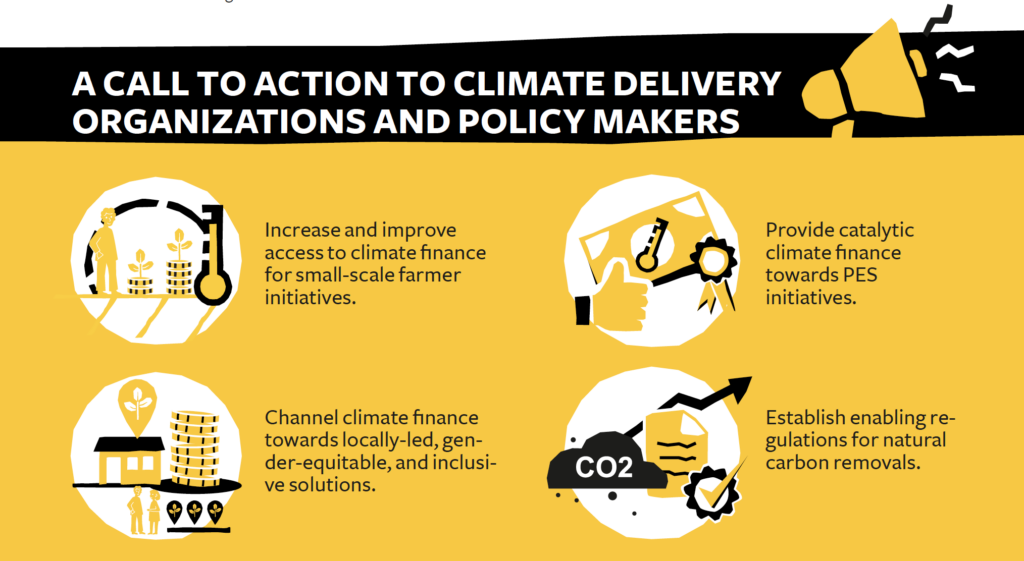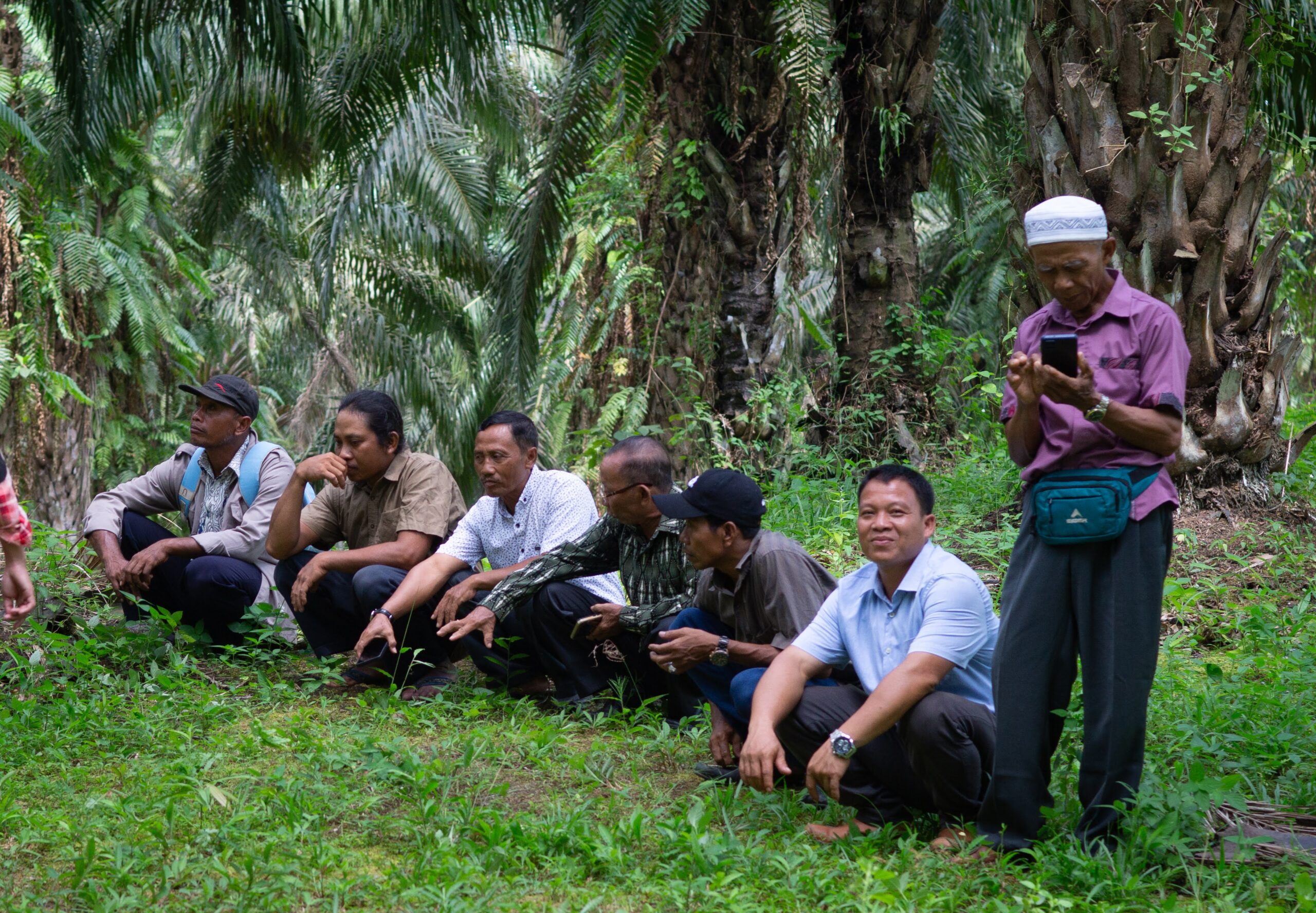In the vast expanse of global agriculture, where small-scale family-operated farms make up a staggering 85% of the 570 million farms worldwide, a critical issue is emerging from the shadows – the disproportionate impact of climate change on those who till the soil. As these farmers grapple with the unpredictable whims of weather and diminishing soil quality, it is evident that the current climate action narrative is failing to address their unique challenges adequately.
The urgency of this matter is accentuated by Solidaridad’s Small Farmer Atlas, an extensive survey spanning 18 countries and over 10,000 small-scale farmers. It underscores the reality that climate-related concerns are not peripheral but are at the forefront of these farmers’ minds. The livelihoods of more than 2.5 billion people depend on small-scale agriculture, yet their voices are often drowned out in the cacophony of global climate policies.
Ramesh Rajput
The biggest issues we are facing here are related to climate change. The monsoon rains used to arrive on time. Farmers could sow the crops on time and the temperature used to be comfortable. But today, the situation is much different. As farmers, we are entirely dependent on nature. Nature determines when I sow and when I harvest. It is important that we can cultivate our crops with respect for nature. Not only because all agriculture is based on nature, but also because it results in better yields.”
The recently released Intergovernmental Panel on Climate Change’s Sixth Assessment Report (IPCC AR6) and the technical dialogue around the UNFCCC Global Stocktake Report of 2023 underscore the vulnerability of global small-scale food producers. Despite the “high confidence” expressed in the impact of climate-related extremes on these farmers, the current climate actions are insufficient to meet the ambitious targets set by the Paris Agreement.
In the face of this pressing reality, a robust climate-action plan is urgently needed, one that places small-scale farming communities at its core. The Global Stocktake Report rightly emphasizes the imperative of supporting agricultural transformations that integrate climate resilience and low-emission development. However, the missing link lies in the inadequacy of current financial mechanisms and their inability to empower vulnerable groups.
Fortunately, at COP28, we witness an increased focus on nature, people, lives, and livelihoods in climate action. A rapid climate action plan in the next few years is crucial to address challenges at the intersection of food, nature, and small-scale agriculture. We urge policy and decision-makers to consider the following four recommendations:

1. Increase and improve access to climate finance
Despite being on the frontlines of climate change, small-scale farming communities often lack the financial resources to implement effective low-carbon and climate adaptation solutions. In line with the COP 27 decision, one of the most critical elements is climate finance, where small-scale farming communities need accelerated climate finance support to enhance adaptive capacity, strengthen resilience and reduce vulnerability to climate change.
- Uphold promises to at least double adaptation finance from 2019 levels by 2025.
- Increase the new post-2025 climate finance goal beyond USD $100 billion per year from 2025 onwards.
- Advance the establishment of the Global Goal on Adaptation (GGA) with principles for locally led adaptation.
2. Channel climate finance towards locally led, gender-equitable, and inclusive solutions
Farmers experience significant barriers in accessing climate finance. Improving the modalities and instruments used to access climate finance by farming communities is vital. Top-down solutions for adaptation are often ineffective and unsustainable8. Programmes frequently fail to align with the specific priorities and needs of vulnerable communities, resulting in adverse effects on adaptation outcomes and the potential exacerbation of social inequality.
In contrast, locally-led action and financing contribute to improved access, more cost-effective interventions, and increased incomes. This leads to the streamlined delivery of services, and incentivizes local actors to spend scarce financial resources more effectively.9
These principles are affirmed by the technical dialogue within the UNFCCC Global Stocktake Report,10 which states that “when adaptation is informed and driven by local contexts, populations, and priorities, both the adequacy and the effectiveness of adaptation action and support are enhanced.”
This perspective is further reinforced by the ethos of the “Shift the Power” movement, challenging the conventional top-down paradigm. At its core, this movement champions the belief that local stakeholders should actively participate in the design and implementation of projects that directly impact their lives.
- Simplify access to climate finance sources
- Ensure the delivery of funds to locally-led, gender-equitable, nature-based and inclusive climate solutions to enhance effectiveness, cost-efficiency, increased incomes and sustainability in the long run.
- Address and overcome key climate finance barriers.
3. Provide catalytic climate finance towards broader ecosystem services
In the context of small-scale farming, pivotal strategies for ensuring food security and bolstering farmer resilience are intricately tied to nature-based solutions. These encompass practices such as agroforestry, climate-smart and regenerative farming, agroecological principles, and ecosystem-based management.11 These practices can also contribute to enhanced natural carbon storage, biodiversity and other vital ecosystem services. This makes them also attractive for private financing through carbon markets.12
Solidaridad’s ongoing collaboration with Rabobank’s Acorn initiative serves as a testament to the effectiveness of these strategies. By adopting agroforestry practices, more than 50,000 farmers have already experienced tangible benefits, witnessing an improvement in both their incomes and resilience. Payment for Ecosystem Services (PES) initiatives emerges as a pivotal component, providing essential incentives for investments in sustainable agriculture and food production.
To facilitate the broader implementation of such initiatives, there is a pressing need for catalytic climate finance. This financial support plays a crucial role in bridging the investment period for small-scale farmers, ensuring that they can reap the benefits of their sustainable practices. The scalability of these initiatives hinges on the availability of such financing, thereby fostering long-term sustainability and resilience within small-scale farming communities.
- Leverage nature-based solutions like agroforestry and regenerative farming for food security and farmer resilience.
- Use catalytic climate finance to bridge investment periods for small-scale farmers until benefits materialize.
4. Establish enabling regulations for natural carbon removals
Article 6.4 of the Paris Agreement provides a structure for a carbon credit market on which greenhouse gas emission reductions or removals may be transferred internationally. An enabling regulation is crucial to incentivize investments in nature-based carbon removals and ensure fair benefits for small-scale producers providing vital ecosystem services. The voluntary carbon market provides lessons on how this can effectively be regulated, including but not limited to non-permanence and leakage management, baseline, additionality methodologies and efficient Measurement, Reporting, and Verification (MRV) systems.
- Create an enabling regulatory framework to facilitate and encourage investments in nature-based carbon removals and other sustainable agricultural practices
- Ensure such a framework provides land managers and farmers with the needed incentives and rewards for sustainable agricultural practices.
- Take into account lessons from the voluntary carbon market and from the Afforestation/ Reforestation Clean Development Mechanism (AR CDM)

